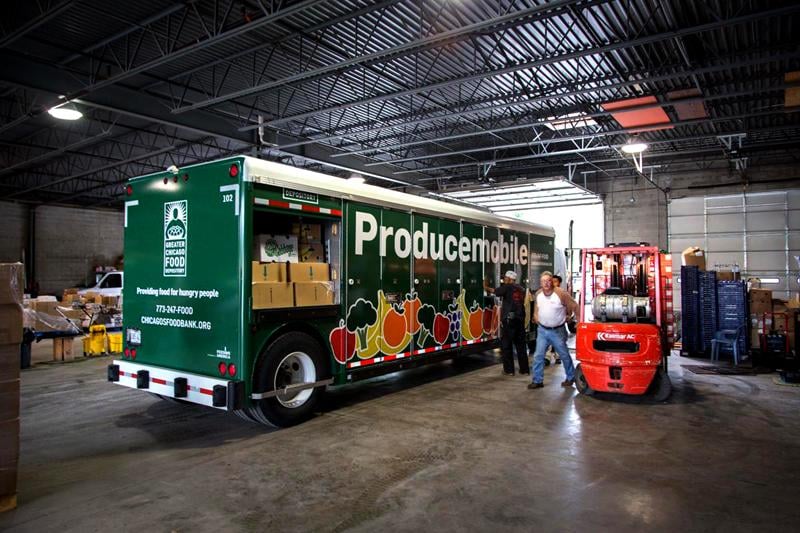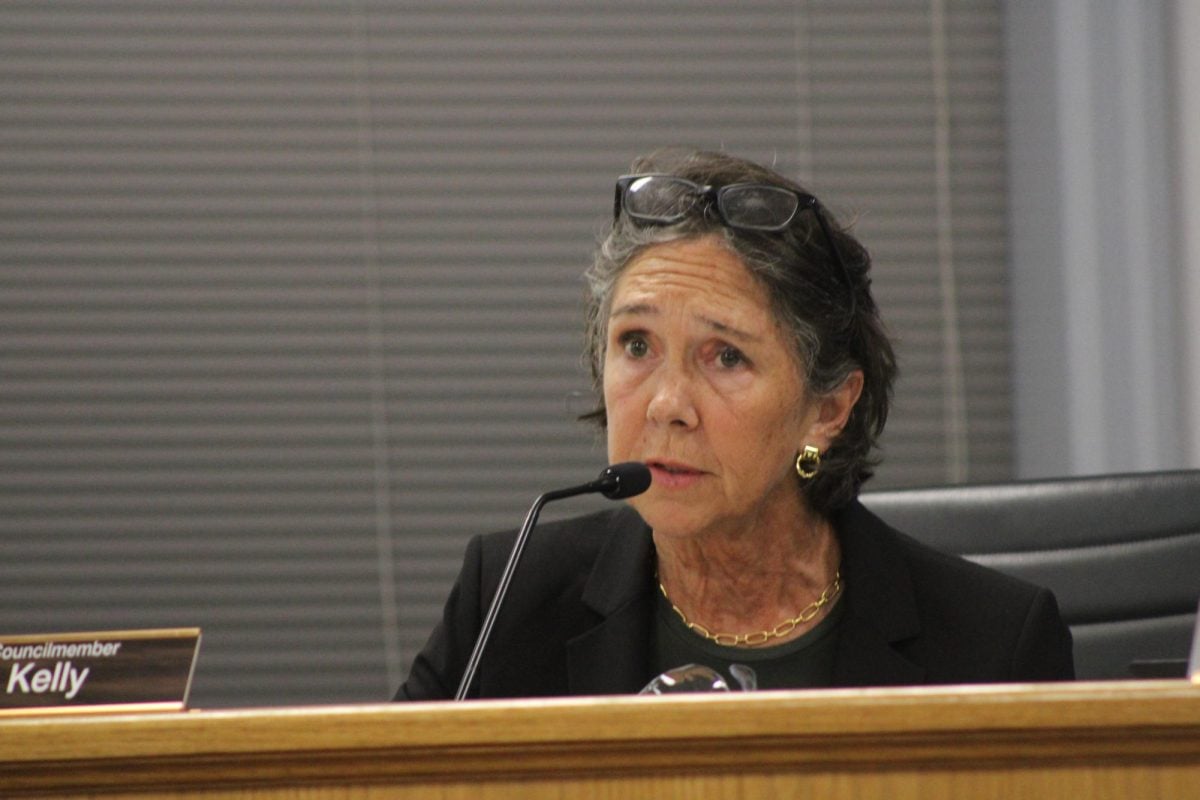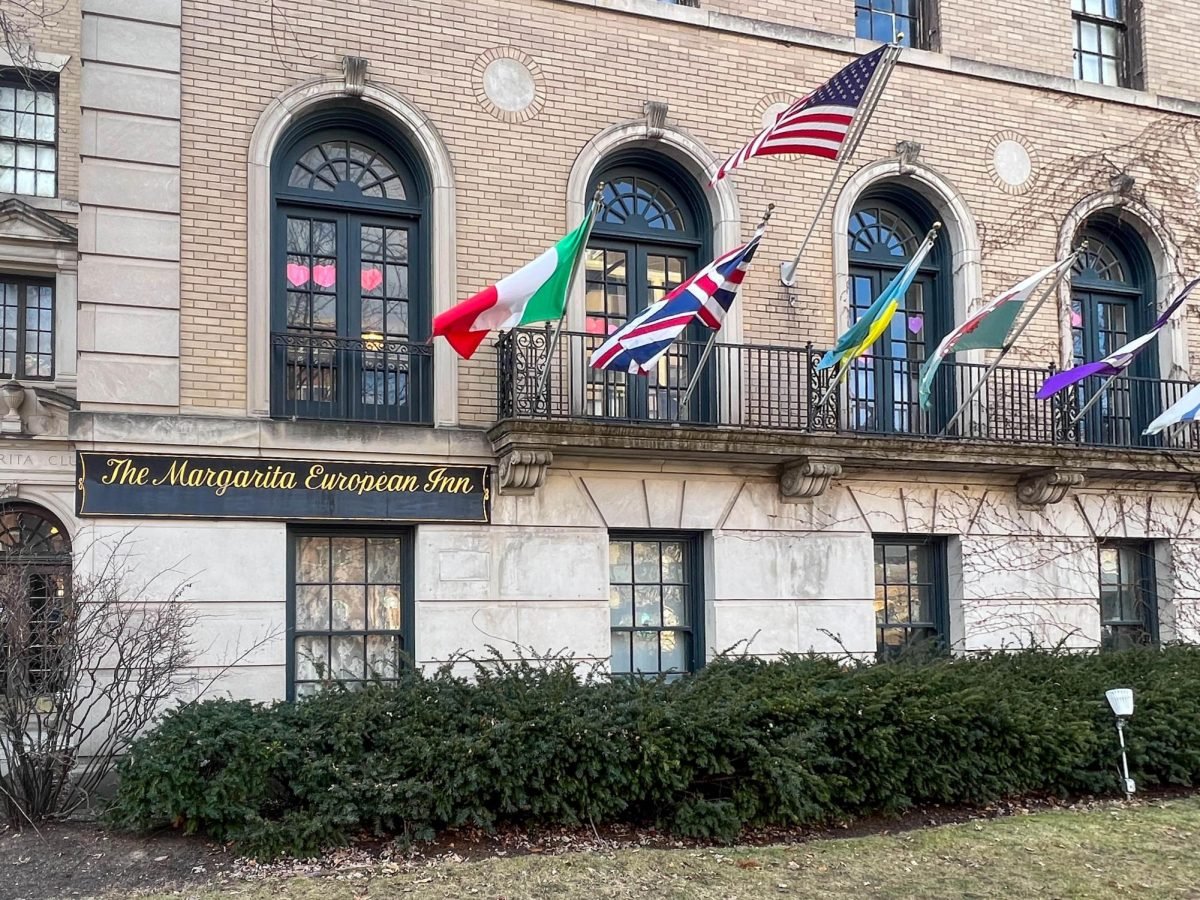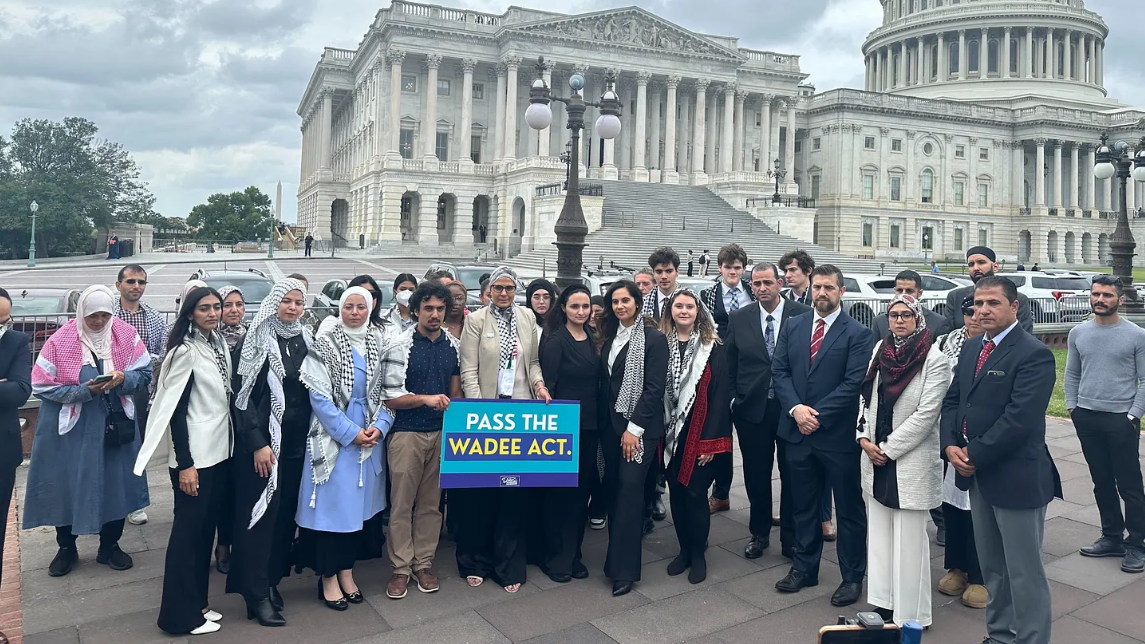People lined up for beans, bananas and even baked goods Tuesday morning when the Producemobile came to the Robert Crown Community Center.
More than a year ago, a partnership between the Greater Chicago Food Depository and Interfaith Action of Evanston brought the Producemobile to the city, distributing fresh produce to community members who are food insecure.
“Fourteen percent of Evanstonians are food insecure,” said Paul Traynor, an Interfaith Action board member. “They don’t know when they’re gonna feed their kids the next meal.”
The Producemobile began coming to Evanston in December 2012, and comes to the community center, 1701 Main St., on the second Tuesday of each month. At each distribution, volunteers give out almost 10,000 pounds of food, Traynor said.
Last year, the Producemobile delivered more than 5 million pounds of fresh produce to its locations in Chicago and Cook County suburbs, GCFD spokesman Paul Morello said.
“It’s healthy, and they need it for a balanced diet,” Morello said. “The fact of the matter is fresh produce is sometimes more difficult to obtain because it’s more expensive or not available.”
It takes more than 30 volunteers to run the Producemobile each month, Traynor said. At each 2.5-hour distribution, the volunteers serve an average of 250 families, which translates to more than 1,000 people. At Tuesday’s distribution, Morello estimated at least 200 guests were served.
Need for food assistance has been trending upward statewide. According to U.S. Department of Agriculture data, from 2012 to 2013 the number of Illinois residents qualifying for the federal Supplemental Nutrition Assistance Program increased from about 1.9 million to just over 2 million. At Evanston Township High School, about 45 percent of students were eligible for free or reduced school lunches in 2012, according to the Illinois State Board of Education.
“I know people with MBAs that are on food stamps,” Evanston resident Debbie Hillman said.
Hillman, who co-founded the Evanston Food Council in 2005, said local awareness of the need for food assistance has increased in recent years. She cited the Campus Kitchens program at Northwestern, double-value for SNAP users at farmers markets and community gardeners’ donations to local pantries.
But Traynor said he would like to see even more involvement from both the Evanston and NU communities.
“I think people need to pay attention to the problem,” Traynor said. “If everybody in Evanston donated a few hours or a few bucks, we could make a huge impact.”
Email: [email protected]
Twitter: @scottbrown545



















